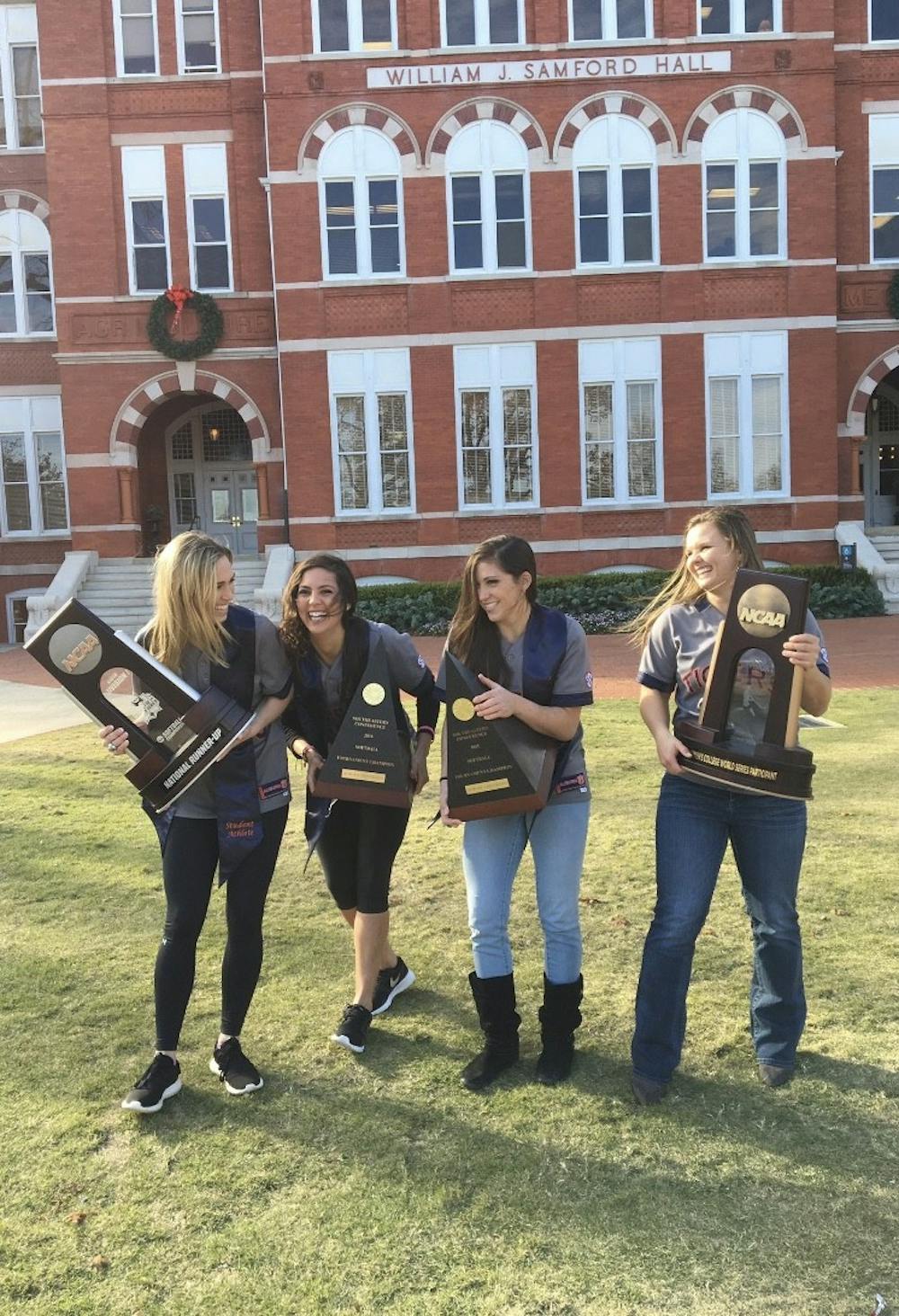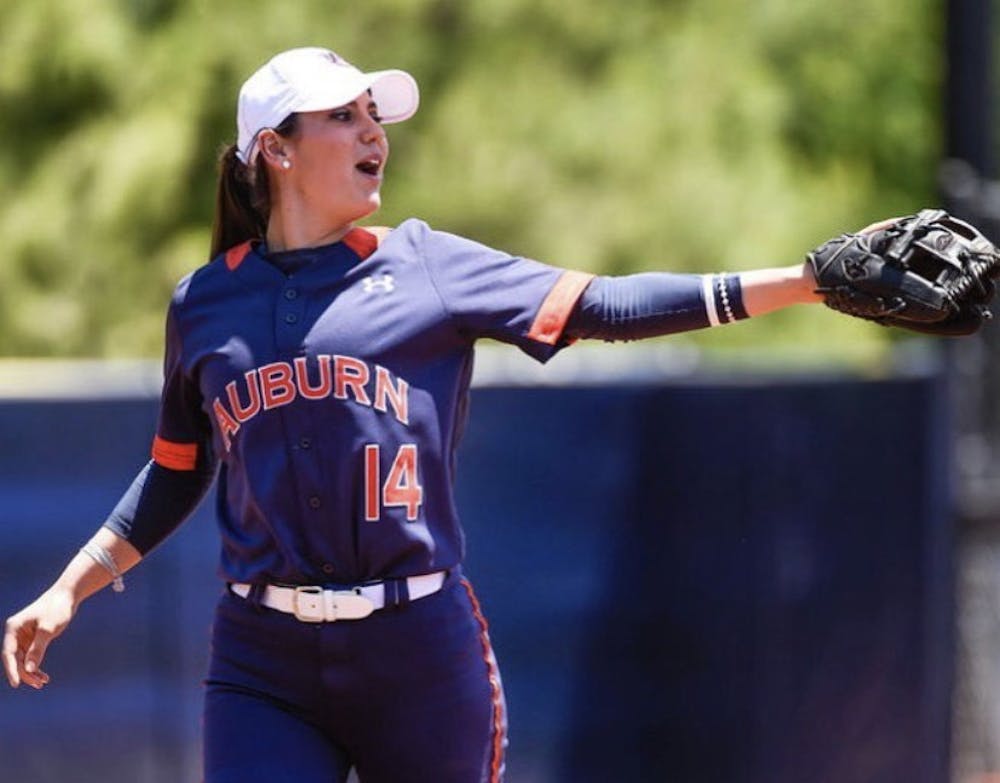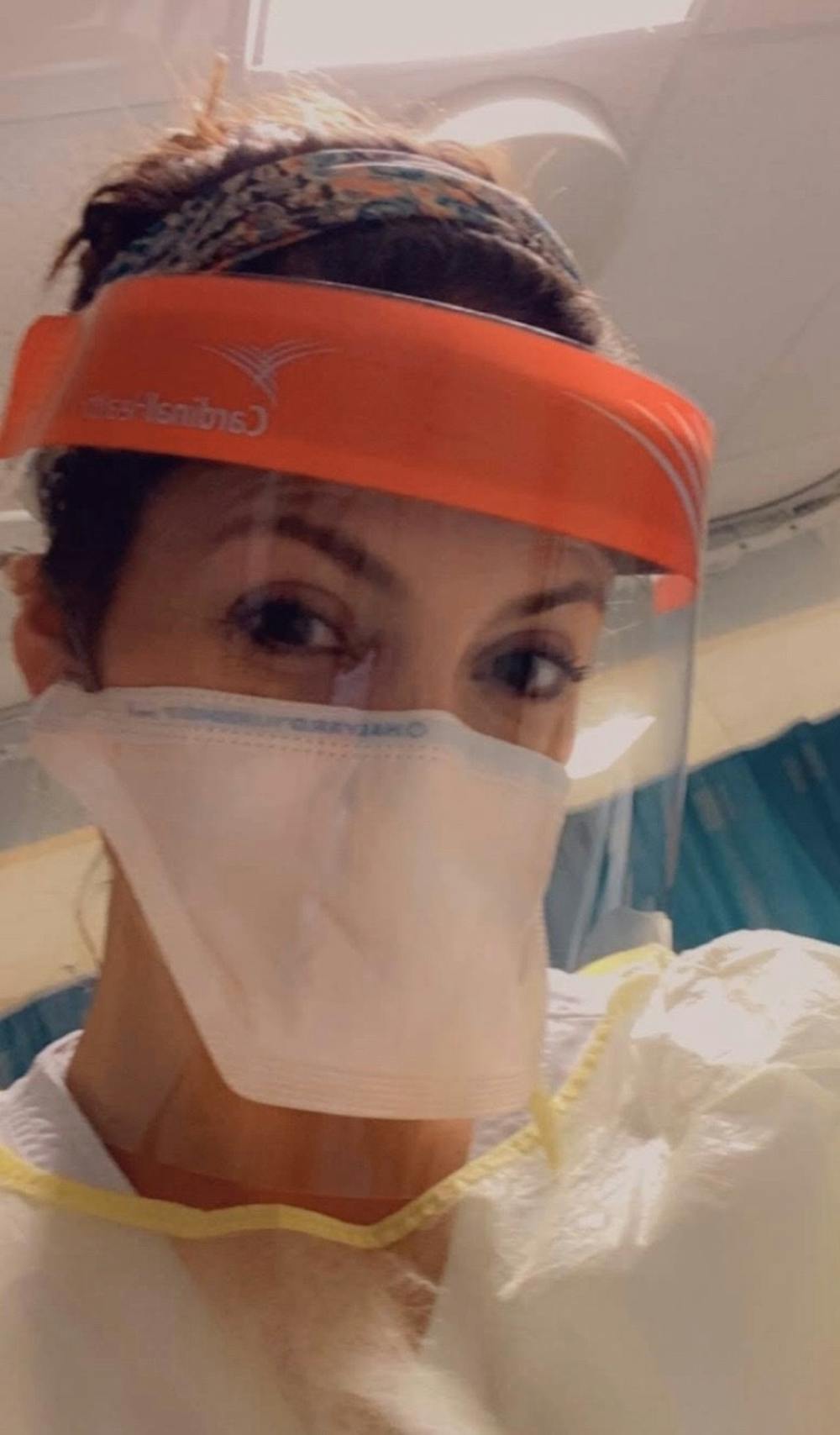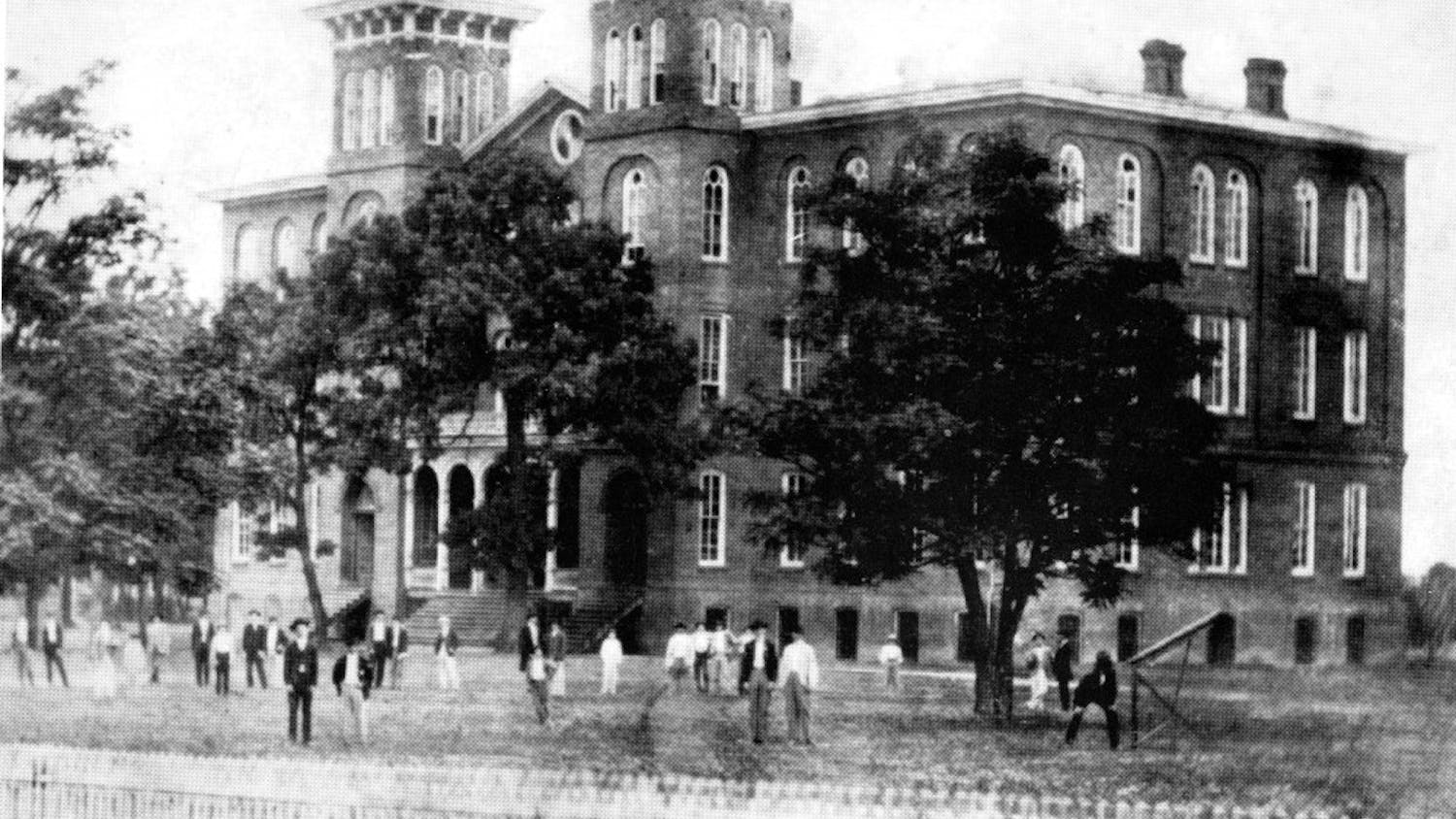Former Auburn softball shortstop Kelsey Bogaards considers herself a baby nurse when it comes to working in the emergency department as an ER nurse.
No, she's not taking care of children. She is someone still learning and gaining confidence in nursing.
Coronavirus has forced many across the country into a new normal with mandatory shelters in place, and forcing many to self-isolate in their homes. She may consider herself still a new nurse, but Bogaards is now one of the many health care professionals across the globe working on the front lines in the battle against COVID-19.
Bogaards works at a south Florida hospital that is considered a Level 1 trauma center, and she has been since March 2019. She may have a year of experience under her belt, but she feels like she is still learning every day, especially in the era of COVID-19.
“They tell you it takes two years to be confident in what you are doing as an ER nurse,” Bogaards said. “It’s a lot to take in, and I have so much respect for the nurses who have been here forever, what they do and how they can handle what we go through every day.”
While she did not always consider a job in nursing or even the healthcare field, impacting others’ lives has always been something that Bogaards has wanted to do.
Growing up with parents that both served the public, with a schoolteacher mom and a police officer dad, having an impact on others has been ingrained in Bogaards.

Bogaards played softball for the Tigers from 2013-16 and was a part of Auburn’s first two SEC Tournament championship teams in 2015 and 2016.
During her time at Auburn, the Tigers also made their first two Women’s College World Series appearances in 2015 and 2016.

Kelsey Bogaards and some of her teammates pose with the softball team's trophies. Contributed by Kelsey Bogaards.
Her softball career at Auburn may have had its fair share of highs, but it also contained lows. She suffered a torn ACL in her right knee during the fall camp of her senior season.
After missing out on a majority of her senior season she was able to return. In her first start of the season, though, she suffered a second ACL tear, this time on the left knee.
Auburn softball rallied around its injured senior shortstop and carried the mantras "Turn Up for Turtle" and "Play for Turtle" the rest of the season — turtle being a reference to Bogaards’ childhood nickname, which came from how she swam like a turtle when she was learning to swim.
These lessons learned from the highs and lows that came with being a student-athlete have carried over and now help aid Bogaards with her work as a nurse, she thinks.
“I think it’s the whole thing of being an athlete is the mentality wise,” Bogaards said. “I think it’s impacted me throughout like it goes beyond softball. I think it’s made me mentally tough to be able to go through trials and tribulations, going into the ER as a brand-new nurse, a baby nurse, having no experience in health care. I think the whole being a student-athlete taught me to how to toughen it out, prioritize, communicate and have basically teamwork.”
It’s not just the knowledge from softball that Bogaards has put into practice as a nurse. She also has taken the advice of the Auburn Creed itself and put into her work.
“You have to count on people to help you out and help the person next to you and teach the ones that are new, just like the older nurses taught me,” Bogaards said. “So, it’s just a lot of teamwork and just working hard honestly. Auburn’s whole motto is working hard and family, so that was instilled in me to help me to get into the role of nursing.”

Kelsey Bogaards on the field during a game. Contributed by Kelsey Bogaards.

The journey to becoming a nurse for her was not the easiest path, as the student-athlete attempted at first to balance both softball with her studies in nursing. The travel associated with softball made her realize that she was unable to give 100% to both, which was unfair to both pursuits.
She chose softball knowing that while her path to nursing was going to be delayed, but that she could go back and get her nursing degree after softball.
Having to see the nursing students that she originally started with graduate while she graduated with a degree in physical activity and health with a minor in sports coaching was a difficult period for her.
“It was hard seeing the nursing students that I originally started with when I graduated with a different degree, my first degree,” Bogaards said. “And then seeing the girls that I went to school with continue their life and become nurses. The timing for me wasn’t right to become a nurse just yet. I needed more time to just focus on nursing.”
Once graduated from Auburn, she decided to enroll at one of Auburn’s sister schools, attending Auburn University at Montgomery for her nursing degree. She graduated around December of 2018 and was hired March 2019.
Bogaards may have a year of experience and a nursing degree, but the coronavirus has brought about changes for everyone. Her hospital now has tents outside, and nurses are either dressed out as an isolation nurse or dressed out with just the standard scrubs.
For Bogaards, her shifts are primarily in isolation, with two of her three shifts a week taking place in the tents. She clocks in at about 6:30 p.m. and puts on the gown, face shield and gets to work.

Kelsey Bogaards with her isolation nursing attire. Contributed by Kelsey Bogaards.
“I do three shifts a week and pretty much out of the three shifts I do, two of them I am in isolation,” Bogaards said. “One shift, I’ll be in the tent from like 7 p.m. to 3 a.m., and then I’ll go back into the ER and do the isolation rooms. It’s like a negative pressure room. You can close the glass doors, and everything stays in that room, so all of those rooms are considered isolation as well. So, we go from the tents to the isolation rooms to the ER. So, pretty much all my shifts are in isolation.”
After finishing a shift in isolation, she changes from the isolation attire and puts on the scrubs that she first arrived in. The goal of changing back into the scrubs after an isolation shift is to try their best not to contaminate family at home.
Dealing with the coronavirus and the challenges that it brings has made the job even more chaotic, and she goes into each shift hoping for the best but expecting the worst.

The coronavirus does not just change up her work, but it has made her routine at home different as well.
Bogaards has not been sleeping well not only because of her late-night shifts, but also because of the thought of bringing the virus home to her loved ones.
“I live at home with my parents, and I have my nephew who is a year and a half years old,” Bogaards said. “I try and keep my distance from him, which is super heartbreaking, but I think the scariest part personally is to bring it home to my family. All my friends who aren’t healthcare workers are like scared to even be around me because they are terrified that I’ll expose them, which is super understanding. As a nurse, you kind of want to isolate yourself to protect the people you love.”
Now the former Auburn softball player who has always known that she wanted to impact others’ lives — even though she considers herself just a baby nurse — is making an impact every day.
Her message regarding the coronavirus may be simple, but it's one necessary for others to follow.
“Obviously, the coronavirus is something new every day, no one really has answers, but the only answers we do have is to stay safe,” Bogaards said. “And by being safe, it’s not going out and going to your friend’s house. It’s just little things like staying home is what you have to do. You have to be cautious to what you are touching, just little things like washing your hands repetitively."
It all comes back to the small details in preventing the spread of COVID-19. And like healthcare professionals across the country have been asking of the country for a month now, Bogaards wants everyone to stay home so they can save lives.
“It is just little things like little details that you have to pay attention to," Bogaards said. "Not to come into the hospital unless it’s an emergency because you are just exposing more nurses and exposing more people and causing yourself more harm. So, just stay home unless it’s an emergency, and just stay healthy and be safe.”
Do you like this story? The Plainsman doesn't accept money from tuition or student fees, and we don't charge a subscription fee. But you can donate to support The Plainsman.





